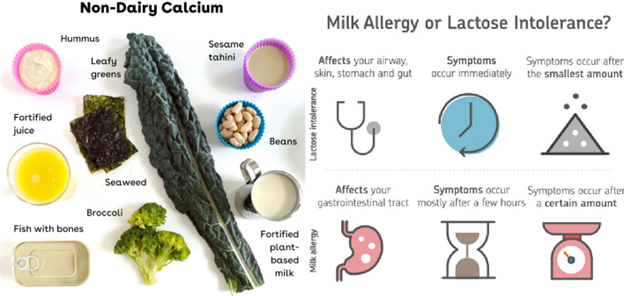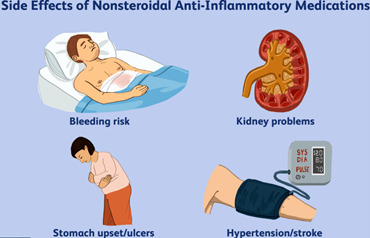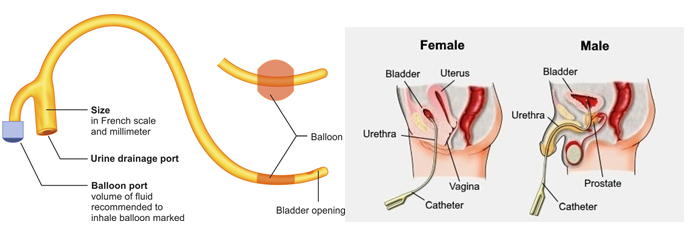A nurse is teaching nutritional strategies to a client who has a low calcium level and an allergy to milk. Which of the following statements by the client indicates an understanding of the teaching?
I Will add broccoli and kale to my diet."
I will stop taking my calcium supplements if they irritate my stomach."
I need to avoid foods with vitamin D because I am allergic to milk.
I will eat more cheese because I can't drink milk.
The Correct Answer is A
Broccoli and kale are good sources of calcium, and by adding them to their diet, the client can increase their calcium intake without consuming milk. It is important to note that some calcium supplements may irritate the stomach but stopping them altogether is not advisable without consulting a healthcare provider. Vitamin D is not a milk product, and it is essential for calcium absorption. Avoiding foods with vitamin D can worsen the low calcium levels. Cheese is a milk product and may not be suitable for someone with a milk allergy.

Nursing Test Bank
Naxlex Comprehensive Predictor Exams
Related Questions
Correct Answer is A
Explanation
NSAIDs are known to be a common cause of acute gastritis. Therefore, it is essential for the nurse to ask the patient about their frequency of NSAID use to determine if this may have caused their current symptoms. Other options such as family history of gastric problems, recent weight gain or loss, and amount of fat in the diet, may also be relevant to the patient's overall health status, but they are not as important as the potential cause of their current condition.

Correct Answer is C
Explanation
The nurse should act on the order to insert a 16 French retention catheter first. The patient's markedly distended bladder and agitated and confused state suggest acute urinary retention, which can be relieved by inserting a catheter to drain the urine. This is a priority intervention as urinary retention can lead to serious complications such as bladder rupture, hydronephrosis, and renal failure. Once the catheter is inserted and the patient's bladder is drained, the healthcare provider can order further tests such as an IVP or blood tests to assess renal function. The order for lorazepam can be addressed after the catheter is inserted and the patient's urinary retention is addressed.
Whether you are a student looking to ace your exams or a practicing nurse seeking to enhance your expertise , our nursing education contents will empower you with the confidence and competence to make a difference in the lives of patients and become a respected leader in the healthcare field.
Visit Naxlex, invest in your future and unlock endless possibilities with our unparalleled nursing education contents today
Report Wrong Answer on the Current Question
Do you disagree with the answer? If yes, what is your expected answer? Explain.
Kindly be descriptive with the issue you are facing.

